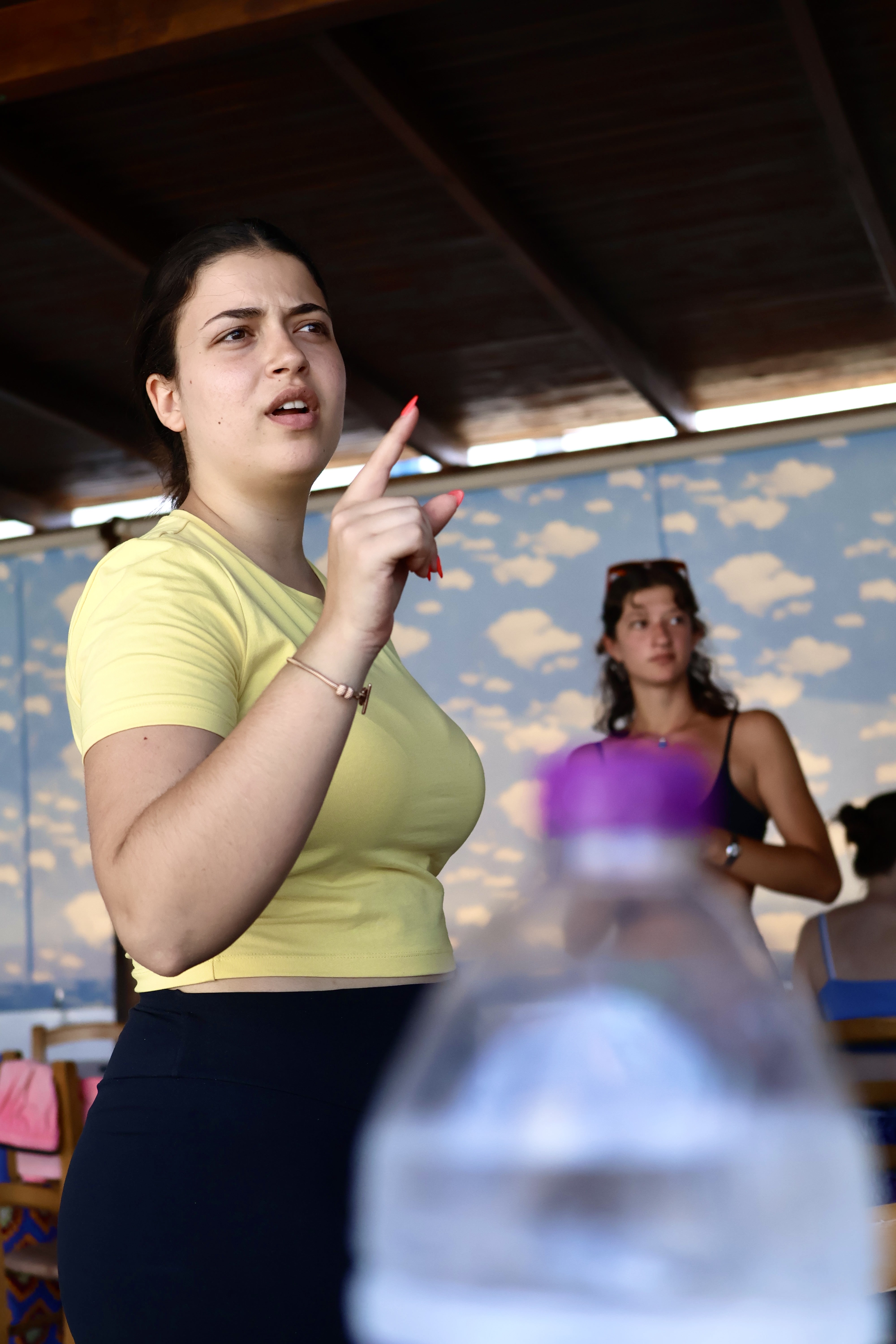Konstantina Mariaki : Between two worlds
.jpg)
On a rocky island in Greece, with barely 1,000 year-round residents, life moves to its own slow rhythm. Kassos, tucked between Crete and Karpathos, is a place of tradition but sometimes isolation and departure. Like many of its young people, Konstantina Mariaki left but comes back every summer.
Now 21, Konstantina lives in Athens, where she studies to become a make-up artist. “I left when I was 16,” she says. “I don’t plan to come back before I’m 30 or 40 and only if there’s work and better infrastructure.” Yet, each summer, like many young islanders, she returns. Her family runs a small hotel and restaurant in Fry, the island’s main village. From June to September, Konstantina helps out with the family business serving dishes, cleaning rooms, and catches up with the few friends who also come back for the season.
Despite the warmth of family and the beauty of the place, life here feels narrow. “In winter, we can be cut off for two weeks,” she explains. “If the weather’s bad, the boat doesn’t come. The prices for basic products are three times higher than in Athens. If you leave, you might not be able to come back.” Not the best conditions for a young person who wants to discover the world.

"In my generation, we want to be equal. We don't protest openly, but things are slowly shifting."
There are few opportunities. There’s no university on the island, so most young people leave after school and rarely return. When Konstantina was younger, there were no activities to fill the afternoons. “Except going to school, there was nothing else to do. If there had been fewer than five kids in my class, we would have had to travel to Karpathos every day for school.” Even today, as an adult, her social life is limited. Konstantina has a handful of friends from Kassos, most of whom also study elsewhere and return only in the summer. “In Athens, I miss them — but I miss the cafés, the shops, my dance team, the chance to go out at night. Here, we might go for a coffee once a week, if someone’s free.”
For young women especially, the weight of old customs is oppressive. “Even though I don’t feel it in my own family, you see it around,” Konstantina gives an example : “If a girl wants to have a boyfriend, people judge her. But if a boy wants a girlfriend, no one cares.” In older generations, gender roles were even stricter. “My grandfather never did anything in the house. My grandmother had to do everything. That’s how it was for most women here. Even now, men are considered the head of the family.” Konstantina wishes those old customs would disappear.
Change, however, is stirring. “In my generation, we want to be equal. We don’t protest openly, but things are slowly shifting.” Exposure to life on the mainland and in cities like Athens is playing its part. There, Konstantina says, she felt immediately accepted. “We made friends fast. In Kassos, when someone new arrives, people are protective, suspicious. We keep our distance. It’s not like in Athens.” The fact, that the younger generation leaves the island for studies and come back, brings a wind of change in mentalities.
For now, Konstantina stands between two worlds: the tradition-bound rhythms of Kassos and the fast-moving life of Athens. But like many young women from Greece’s isolated islands, she refuses to be confined by old expectations. Whether in Athens or Kassos, whether now or in ten years, Konstantina represents a generation no longer waiting for permission — but quietly, stubbornly claiming the space they deserve.
Text : Maëlle Laurent, George Rampotas, Léna Romieu.
Photos : Maëlle Laurent
